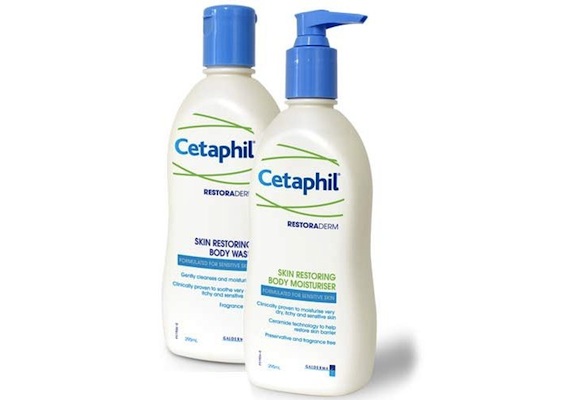
Managing Eczema Flare Ups This season:Top Tips From Dermatologist Dr Ann-Maree Kurzydlo, for Eczema Awareness Week – 13 to 21 September 2015
Date: September 14 2015

The onset of spring and summer is always something to cheer about, but for some the seasonal change as we approach the warmer months can cause hay fever and eczema to flare up. Though uncomfortable, and sometimes unsightly, eczema flare ups can be managed with simple and proactive skin care steps that minimise the occurrence and severity.
Eczema (atopic dermatitis) is a recurring, non-infectious, inflammatory skin condition affecting one in three Australians at some stage throughout their lives[1]. Most common in people with a family history of an atopic disorder, including asthma or hay fever, the condition can be debilitating and a constant source of irritation, pain and, in some cases, embarrassment. The Eczema Association of Australasia has stated that 20 per cent of people will develop eczema before the age of five[2].
Many people with moderate to severe eczema have a filaggrin deficiency which is a protein in the epidermis that is critical to the formation of a healthy skin barrier. When a filaggrin deficiency is apparent, the skin barrier allows higher than normal water loss (dry, scaly skin), as well as allowing entry of allergens through the epidermis where they trigger inflammatory and allergic immune responses such as eczema[3]. Using a moisturiser that puts moisture back into your skin, such as Cetaphil Restoraderm Skin Restoring Body Moisturiser, not only soothes itchy skin but increases skin barrier integrity and helps skin repair eczema damage.
“A key part of managing eczema is to establish a daily skin care routine that preserves the skin barrier and reduces inflammation,” says Dermatologist Dr Ann-Maree Kurzydlo. “Ideally, this should be adopted all year round but is particularly important in September when seasonal environmental changes occur and we see a rise in the incidences of eczema flare ups among adults.”
Manage eczema flare ups with these simple tips from Dermatologist, Dr Ann-Maree Kurzydlo:
1. Take short, warm baths or showers, not long and hot, as hot water dries the skin.
2. Use soap free and fragrance free products. Soap strips oil from the skin and fragrance irritates eczema prone skin.
3. Avoid shampoo running over the body as much as possible when washing hair. Shampoo is full of detergents and other irritants which may worsen eczema.
4. Apply a good moisturiser regularly and liberally after a bath or shower to help maintain skin barrier. Use moisturisers formulated for sensitive skin or those made for eczema prone skin.
5. Wear cotton clothing as much as possible rather than synthetics or wool.
6. Choose beauty products and sunscreens carefully. Look for products labelled “low irritancy” or “hypoallergenic” as hypoallergenic means the ingredients in the product are less likely to activate allergies.
7. When experiencing an eczema flare up avoid scrubs, exfoliating washes and toners, which are irritating. Do not use loofahs.
8. Eczema sufferers and those with sensitive skin should avoid products containing triclosan (an antibacterial agent), preservatives, and stronger concentrations of glycolic acids.
About Cetaphil® RESTORADERM™
Developed by dermatologists for eczema sufferers, the advanced formulations and patented technology of Cetaphil® RESTORADERM™ work to help restore the skin’s natural moisture barrier and protect it against dryness.
Eczema Awareness Week runs from 13th to 21st September. Visit Eczema Association of Australasia for more information. www.eczema.org.au
 |
||||||||














__small.png)










